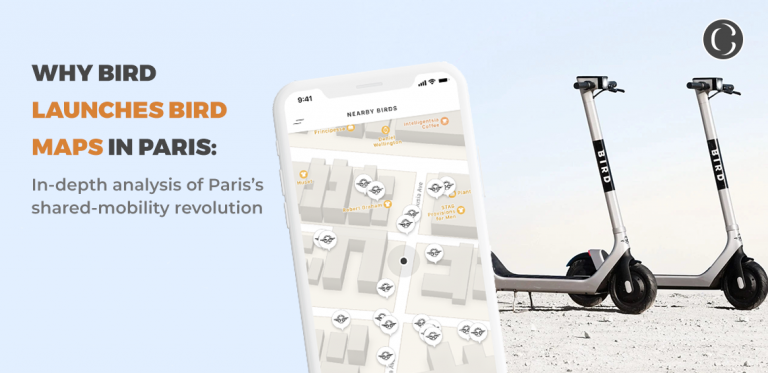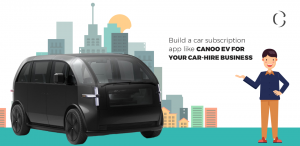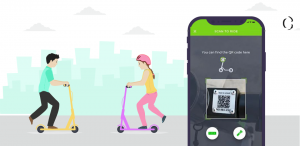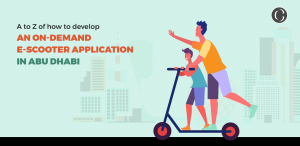Why Bird launches Bird Maps in Paris: In-depth analysis of Paris’s shared-mobility revolution

The Bird Mobility has launched a new navigation app called Bird Maps in Paris and Tel Aviv to provide turn-by-turn navigation to riders who are using micro-mobility services on the streets. The app also follows other initiatives to improve safety while riding including Helmet Safety and Warm-up mode.
The app was created in a partnership with Israel-based startup Trailze using its navigation software. Currently, Bird has launched the app on a pilot for an undefined period of time and the result of this pilot will determine whether Bird will take this app into other cities for expansion or not.
Bird Maps commutes exclusive bike lanes or the paths with less traffic and offers both audio-visual directions to the riders. One of the best features of the Bird Maps app is that it doesn’t use phone mounts, which ensures the safety of riders’ data while navigation.
The efforts of Bird Maps to provide easier and safer navigation to the micro-mobility users will certainly increase ridership and revenue and decrease the afoul of regional rules and regulations in all the services including bike-sharing, car-sharing, etc.
If this goes well, the company will definitely get a warmer welcome across the world and will open another door for startups to do business in the field of micro-mobility. But this news triggers our mind to think that why Bird introduced its pilot in Paris and not in any other cities having the major micro-mobility markets in the world. So, let’s try to decode the situation of micro-mobility in Paris:
The Present and Future of the micro-mobility market in Paris:
Shared-mobility is not a recent concept in Paris. As Europe’s first large public shared-bike service named Vélib’ was set up in Paris only in 2007.
Then with the passing time, bike-sharing services evolved into docked services featuring traditional bikes, e-bikes, cargo bikes, etc., and were adopted widely in the world as a part of a sustainable urban mobility strategy. Simultaneously the mobility infrastructure has also evolved with time from light docking infrastructure to photovoltaic energy recharge stations, smart locks, geo-fencing solutions, GPS tracking, and so on.
These newly emerging business models were providing free-floating services and having extensive fleets on the roads. The app-based portable, compact, electrically-powered scooters were launched on the streets of Paris in 2018. Initially, the shared-mobility services have been launched by already grown-up startups coming mostly from the USA but then the number of native European startups also started growing up with times.
E-scooters complement the existing public transport by providing excellent first and last-mile transit in addition to individual door-to-door mobility solutions. But similar to any other mode of transportation, this new mobility also brought safety concerns with it such as On hardware side – increased speed, visibility & stability constraints, size of fleets, etc., and on infrastructure side – issues of potholes, pedestrians & cyclists safety, threats to riders while driving on the pavements, etc.
The deployment and parking of e-scooter fleets in European countries in general as the sidewalks are not wide enough to accommodate e-scooter mobility on sidewalks after prioritizing pedestrians. Although, Geofencing can solve issues regarding the cluttering of e-scooter fleets.
But Paris is no like any other European city as the Paris City Council is ahead in building rules and regulations for the operators such as the Paris City Council has issued the Code of Conduct for all the dockless bike-sharing operators in 2018 complying with the regulatory framework of traffic laws, accessibility norms, fleet standards, and participate in regular meetings that consider adaptations of service according to the local context needs. The Council has also guaranteed in the code to increase the parking stations for bikes to 40,000 by the end of 2020 across the city. And the result of these proactive steps of the city is in front of all of us as almost 15,000 e-scooters are available today in Paris alone.
In the middle of 2019, the Council adopted strict measures to regulate the rampant mobility of the shared e-scooters and to ensure the safety of the pedestrians such as e-scooter parking was restricted only to the car or motor parking places and forbidden on the sidewalk or bike-parks, and the speed limit was reduced to 20km/hr on cycling paths and to 8km/h in pedestrian areas and also stopped any further deployment in Paris.
Also, EU-funded research – GECKO funded under Horizon-2020 assesses the actions required to devise the regulatory frameworks for disruptive technologies and supports authorities across Europe. GECKO also welcomes stakeholders including policymakers, researchers, developers, and technicians working on new mobility services such as MaaS.
It is expected that France will contribute significantly to the global micro-mobility market in the coming future, which is expected to reach $9.8 billion by 2025. French people who have already adopted more than 10 shared-mobility apps, including:
Lime:
Read our dedicated blog to know more about Lime and develop its clone app.
Bird:
Read our dedicated blog to know more about Bird and develop its clone app.
Bolt:
Read our dedicated blog to know more about Bolt and develop its clone app.
Wind:
Read our dedicated blog to know more about Wind and develop its clone app.
Tier:
Read our dedicated blog to know more about Tier and develop its clone app.
Circ:
Read our dedicated blog to know more about Circ and develop its clone app.
VOI:
Read our dedicated blog to know more about VOI and develop its clone app.
Dott:
Read our dedicated blog to know more about Dott and develop its clone app.
Jump:
Read our dedicated blog to know more about Jump and develop its clone app.
To set up the e-scooter app in Paris one needs to have the knowledge about the recent developments in the legal regulations regarding the e-scooter mobility to avoid breaking them and ensure the stable marketplace. So let’s have a quick look at what are the rules for e-scooters in Paris.
- The authorized maximum speed limit for all the electrically-assisted bikes is 25 km/hr. And the violation of it costs a fine of up to €1500.
- The fleets must be equipped with front & rear lights, a reflector, an audible honk, and it is compulsory for riders to wear a helmet, reflective vests, and hand gloves. Wearing headphones while riding is prohibited.
- The rider must be 12 years old or else is liable to a fine of €35.
- Also taking a passenger on a scooter, the rider is liable to a fine of €135.
How Coruscate can help you set up an e-scooter business in Paris:
Coruscate is the leading e-scooter app development company that has delivered successful app solutions to the companies from each corner of the world. Coruscate can help you with business solutions, hardware solutions, technical solutions, and of course application solutions. We offer end-to-end business solutions for startups.
Our white label solution – Rohak hit your business instantly. With Rohak, we can help you to launch the fully functional e-scooter app just within 60 business days.
To know more about Rohak and solve your queries regarding the e-scooter app development contact our experts now.









